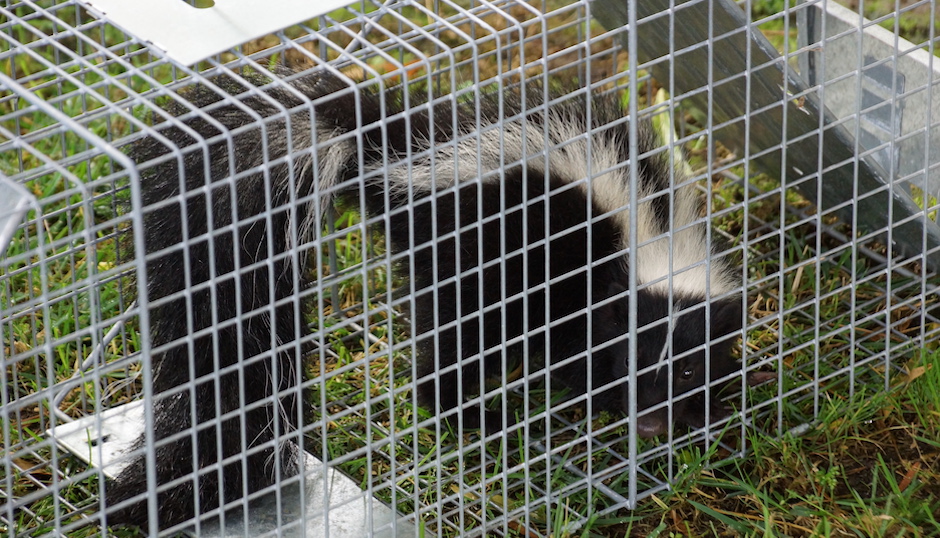Are Skunks That Are Active In The Day Carriers Of Rabies?
The answer to this question is not necessarily. Skunks with rabies will almost always be active during the day. However, not all skunks who are active in daylight hours have rabies. It can be confusing if you aren’t familiar with this animal and its characteristics.
Skunks are naturally nocturnal, being the most active at night. They tend to do most of their foraging for food between dusk and dawn. However, there are multiple reasons that a skunk may venture out during the daylight hours.
For instance, if a hungry skunk was unsuccessful in his quest for food the previous evening, then it may continue to hunt through the daylight hours. Hunger is a strong motivator.
The bond between a mother and her young is also very strong. Skunks make good mothers. They are very nurturing and strive to provide well for their young. However, if they are somehow separated, they will continue to look for each other even during daylight hours.
Another reason for a skunk to leave its burrow during the day is to seek warmth. If their den is not well insulated during the cold winter months, skunks will go out in search of a new one. They will typically do this during they day as they have poor vision. 
How to Tell if a Skunk is Rabid
Rabid skunks can sometimes be difficult to spot. They may carry the disease for quite some time before presenting with symptoms. Since it is not uncommon to see a skunk during the daylight hours, you must observe their behavior and physical characteristics to determine if they have contracted the disease.
Most of the time, skunks contract rabies through contact with another infected animal. However, the disease can be passed from the mother to the young at birth.
In later stages of the illness, skunks will salivate excessively and act abnormally. While most skunks typically are not aggressive, rabid skunks are. Skunks with rabies often display no fear of humans.
These sick animals may also display discharge from their nose and eyes. Rabies tends to be a messy illness in its later stages. The animal may stumble, vocalize and even circle a particular spot on the ground.
Other symptoms or signs of rabies in skunks includes seizures, convulsive-like movements, paralysis and foaming at the mouth. Rabies is a terrible disease for which there is currently no cure.
You should never approach a wild skunk. If you suspect that the animal has rabies, keep your distance and contact your local wildlife management team. Keep your pets inside until the rabid skunk has been euthanized or removed.
Visit our Wildlife Trapper Hillsboro home page to learn more about us.

